When parents consider enrolling their kids in martial arts, they often wonder: Should I choose karate or MMA for my child? Both martial arts offer amazing benefits for children ages 4 to 10. The good news is that both karate and MMA for kids can help your child grow stronger, more confident, and more disciplined.
In this guide, we'll look at the benefits of both karate and MMA for kids. We'll also explore how programs like Mastery Martial Arts in Troy, Michigan, are helping children develop important leadership skills that last a lifetime.
What is Karate?
Karate is a traditional martial art that started in Japan many years ago. Kids who learn karate practice special moves called "forms" or "kata." These are like dances that help kids remember different punches, kicks, and blocks. Karate uses a belt system where kids start with a white belt and work their way up to a black belt.
In karate classes, children learn to bow to their instructors and follow the rules. They practice the same moves over and over until they get really good at them. Karate teaches kids to be respectful, focused, and patient.
What is MMA for Kids?
MMA stands for "Mixed Martial Arts." This means kids learn moves from many different fighting styles all mixed together. MMA for kids might include some karate, some wrestling, and some other martial arts too. It's like getting to try a little bit of everything!
MMA for kids is different from what adults do. For young children, MMA focuses on fun games, basic moves, and staying safe. Kids don't do any dangerous fighting - instead, they learn how to be strong, smart, and confident.
The Amazing Benefits of Karate for Kids
Building Confidence That Lasts
One of the best things about karate is how it helps kids believe in themselves. When a small child learns that good technique can beat someone much bigger and stronger, their confidence grows huge! Karate teachers give lots of encouragement and help kids see that they can overcome any challenge if they keep trying.
At Mastery Martial Arts, instructors create an environment where every child feels supported. Through continual encouragement and helpful feedback, kids learn to believe in their ability to overcome challenges through hard work and dedication. This confidence doesn't just stay in the martial arts studio - it follows kids to school, home, and everywhere they go.
Learning to Be a Leader
Karate has a special belt ranking system that naturally teaches kids how to be leaders. As children move up through the ranks, they get to help younger students learn new moves. Higher-level belts become mentors for beginners, showing them techniques and giving encouragement.
Mastery Martial Arts takes leadership training very seriously. Their program, led by Denny Strecker (a two-time best-selling author on parenting and child development), focuses on developing communication, respect, resilience, and emotional self-control alongside traditional martial arts training. [2] Kids learn that being a leader means helping others and setting a good example.
The leadership skills kids learn in karate help them in many ways:
•They learn to take charge of their own progress
•They become better at helping friends and family
•They develop respect for teachers and authority figures
•They learn to make good decisions on their own
Developing Strong Character
Karate teaches kids that getting better takes time and practice. To earn their next belt, kids must prove they know their techniques really well. This takes perseverance - which means never giving up even when things get hard.
Kids in karate learn to set goals and work toward them. They might want to earn their yellow belt, then their orange belt, and so on. Learning to prioritize activities to reach their goals is a skill that helps them in school and life too.
Resilience is another important character trait that karate builds. When kids face challenges or bullies, they can use the coping skills they learned in martial arts to handle tough situations. This resilience also helps them do better in school and get along better with friends and family.
Self-Discipline and Focus
In karate, kids practice the same moves over and over again to get really good at them. They learn that the only way to get better is to use correct technique, and this only happens through disciplined practice.
Unlike sports that only happen during certain seasons, karate classes are available all year long. This gives kids the chance to build good habits through consistent training. The self-discipline kids develop in karate classes helps them in other parts of their life too - like doing homework, cleaning their room, and following family rules.
Physical Health and Fitness
Regular karate practice helps kids develop and maintain a healthy body weight. One-hour karate classes three times per week give kids enough exercise to meet health recommendations for physical activity.
Kids who practice karate learn to take care of their bodies with healthy foods and the right amount of exercise. As these children grow up, their childhood karate lessons help them want to stay strong and fit for their whole lives.

The Exciting Benefits of MMA for Kids
Learning Multiple Self-Defense Skills
MMA for kids teaches children a variety of martial arts styles and self-defense skills all in one program. Kids learn anti-bullying techniques that don't involve fighting or being aggressive toward others. They understand that their first line of defense is to avoid confrontation or handle a situation with confidence.
This variety gives kids more tools to protect themselves and feel safe. Instead of just learning one style of martial arts, they get to experience different approaches and find what works best for them.
Amazing Physical Fitness
MMA gives kids a fun and safe place to be physically active. Martial arts training increases kids' physical health in many ways, including their endurance, strength, balance, flexibility, speed, coordination, and agility. [3] Kids who learn healthy habits when they're young are more likely to keep these good habits when they grow up.
The physical benefits of MMA for kids include:
•Stronger muscles and bones
•Better balance and coordination
•Increased flexibility and agility
•Improved cardiovascular health
•Enhanced motor skills development
Building Social Skills
MMA instructors expect their students to treat each other with respect. In a martial arts class environment, kids learn to develop important social skills and positively interact with other children outside of school.
This is especially helpful for kids who might be shy or have trouble making friends. The martial arts community becomes like a second family where kids support each other and celebrate each other's successes.
Goal-Setting and Achievement
In MMA for kids, children steadily improve their individual skills through practice. Working toward continuous improvement allows kids to practice goal-setting. The process of setting and accomplishing personal martial arts goals builds a child's self-confidence. [3]
Kids learn that improvement comes from consistent effort, not just natural talent. This teaches them that they can get better at anything if they're willing to work hard and practice regularly.
Problem-Solving and Strategy
MMA for kids is as much of a mental workout as it is physical. Rather than just using muscle and relying on physical strength, students must problem-solve and use strategy. This helps kids become better thinkers and decision-makers.
These problem-solving skills help kids in many areas:
•Better performance in school subjects
•Improved ability to handle conflicts with friends
•Enhanced creativity and critical thinking
•Better decision-making in daily situations
Self-Discipline and Work Ethic
MMA training helps kids become more self-disciplined. In martial arts, kids learn to stay in control of their actions. They also learn what it means to build a strong work ethic.
This self-discipline transfers to other areas of life, helping kids:
•Complete homework and chores without being reminded
•Make better choices about screen time and activities
•Develop patience and persistence
•Build responsibility and accountability

Mastery Martial Arts: Leading the Way in Character Development
Mastery Martial Arts in Troy, Michigan stands out as an exceptional example of how martial arts can transform children's lives. Their comprehensive leadership training system goes far beyond traditional martial arts instruction to help children build crucial life skills. [2]
The Leadership Training Advantage
What makes Mastery Martial Arts special is their focus on leadership development. Led by Denny Strecker, who brings his experience as a two-time best-selling author on parenting and child development, the program serves children ages 4 and up with a focus on developing:
•Communication Skills: Kids learn to express themselves clearly and listen to others
•Respect: For themselves, others, and authority figures
•Resilience: The ability to bounce back from challenges and setbacks
•Emotional Self-Control: Managing feelings and reactions in healthy ways
Outcome-Based Learning
Mastery's approach is different because it's outcome-based. Each class is designed with specific goals that allow children to experience consistent wins. This builds self-esteem through progressive achievements rather than focusing only on athletic performance.
Parents report seeing significant improvements in their children's behavior and confidence within just weeks of beginning the program. One parent shared: "Mastery Martial Arts gave my son the ability to believe in himself again. He's more focused, respectful, and proud of who he is becoming. It's the best investment we've ever made in his future."
Beyond the Basics
Mastery Martial Arts offers more than just regular classes. Their program includes:
•Specialized workshops on self-control and discipline
•Summer camps for extended learning
•Community outreach events
•Child safety seminars
•A warm, welcoming, non-intimidating environment where every child is celebrated for their effort [2]
This comprehensive approach reflects their thirty-year commitment to developing the whole child, not just their physical skills.
Age Considerations: What's Right for Your 4-10 Year Old?
When choosing between karate and MMA for kids in the 4-10 age range, it's important to consider your child's individual personality and needs.
For Ages 4-6
Both karate and MMA for kids can be adapted for very young children. At this age, classes focus more on:
•Basic movements and coordination
•Following simple instructions
•Playing games that teach martial arts concepts
•Building social skills and respect for others
•Having fun while being active
Karate might be slightly better for very young kids who benefit from more structure and routine. The traditional aspects of karate, like bowing and following specific forms, can help young children learn discipline and respect.
For Ages 7-10
Kids in this age group can handle more complex techniques and concepts. They're ready for:
•Learning actual self-defense moves
•Understanding the mental aspects of martial arts
•Setting and working toward specific goals
•Taking on leadership roles with younger students
•Developing real problem-solving skills
MMA for kids might appeal more to children in this age group who want variety and enjoy learning different styles. However, karate's belt system can be very motivating for kids who like clear goals and recognition for their progress.
Safety Considerations
Both karate and MMA for kids emphasize safety when taught properly. Reputable schools like Mastery Martial Arts prioritize:
•Age-appropriate techniques and activities
•Proper supervision and instruction
•Safe equipment and training environments
•Clear rules about contact and sparring
•Focus on control and technique over power
For children ages 4-10, both martial arts should focus on skill development, character building, and fun rather than competitive fighting or aggressive contact.
Making the Right Choice for Your Child
The decision between karate and MMA for kids ultimately depends on your child's personality, interests, and your family's goals. Here are some questions to consider:
Choose Karate if your child:
•Enjoys structure and routine
•Responds well to traditional teaching methods
•Is motivated by earning belts and ranks
•Benefits from clear rules and expectations
•Enjoys practicing forms and patterns
Choose MMA for Kids if your child:
•Likes variety and trying new things
•Gets bored easily with repetition
•Enjoys problem-solving and strategy
•Wants to learn multiple martial arts styles
•Thrives in a more modern, flexible environment
Consider Mastery Martial Arts if you want:
•Strong emphasis on leadership development
•Comprehensive character building
•Experienced, caring instructors
•A proven track record of positive results
•A supportive community environment
The Bottom Line: Both Are Great Choices
The truth is that both karate and MMA for kids offer incredible benefits for children ages 4-10. Whether you choose traditional karate or modern MMA for kids, your child will likely experience:
•Increased confidence and self-esteem
•Better physical fitness and coordination
•Improved discipline and focus
•Enhanced social skills and respect for others
•Valuable self-defense knowledge
•Character development and leadership skills
The most important factor is finding a high-quality program with experienced instructors who understand how to work with young children. Programs like Mastery Martial Arts demonstrate how martial arts can be a powerful tool for developing not just physical skills, but the leadership qualities and character traits that will serve children throughout their lives.
Remember, the "best" martial art for your child is the one they enjoy and will stick with. Both karate and MMA for kids can provide a foundation for lifelong fitness, confidence, and personal growth. The key is finding the right program and instructors who share your values and understand your child's unique needs.
Whether you choose karate or MMA for kids, you're giving your child a gift that will benefit them for years to come. The confidence, discipline, and leadership skills they develop through martial arts training will help them succeed in school, relationships, and whatever challenges life brings their way.
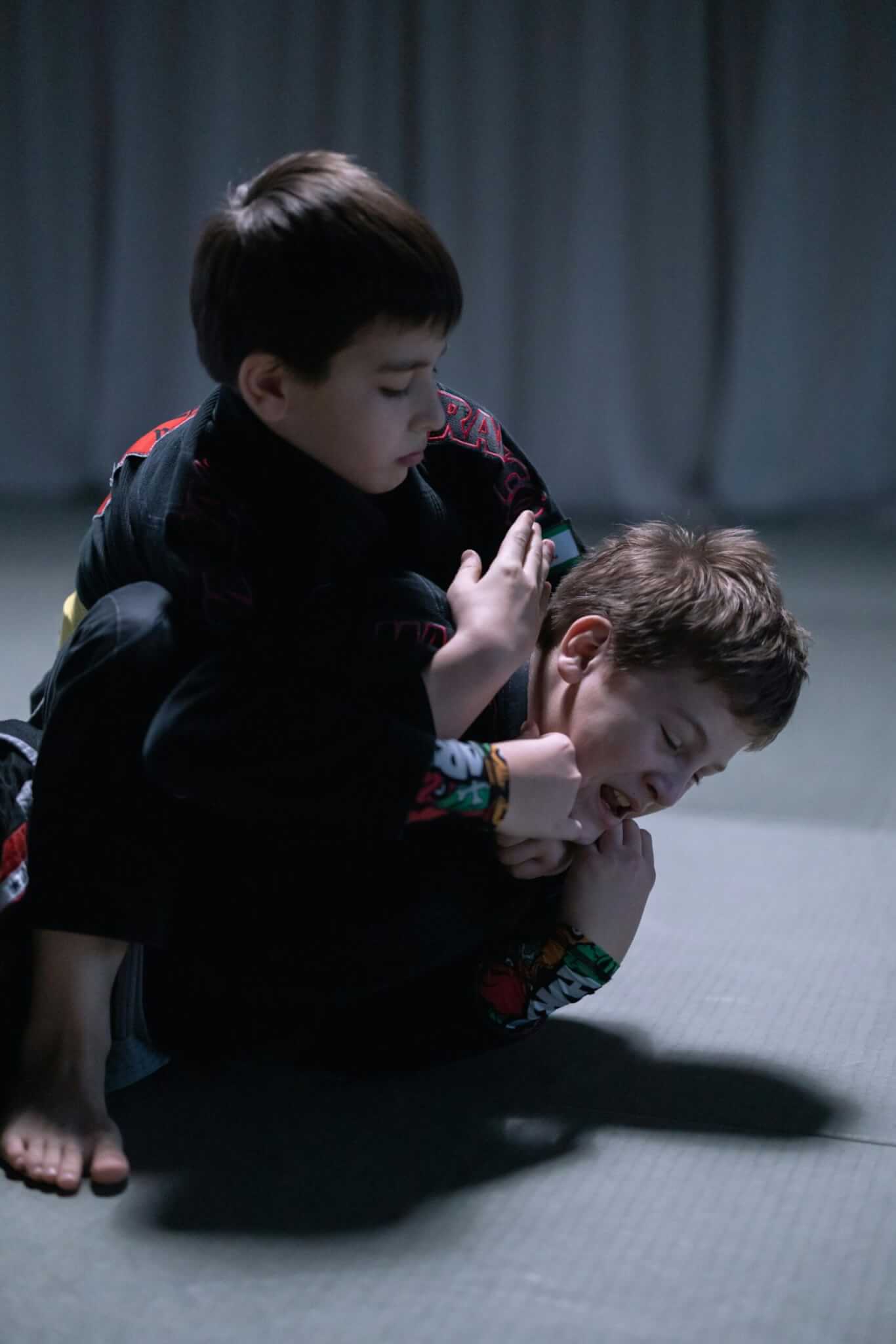
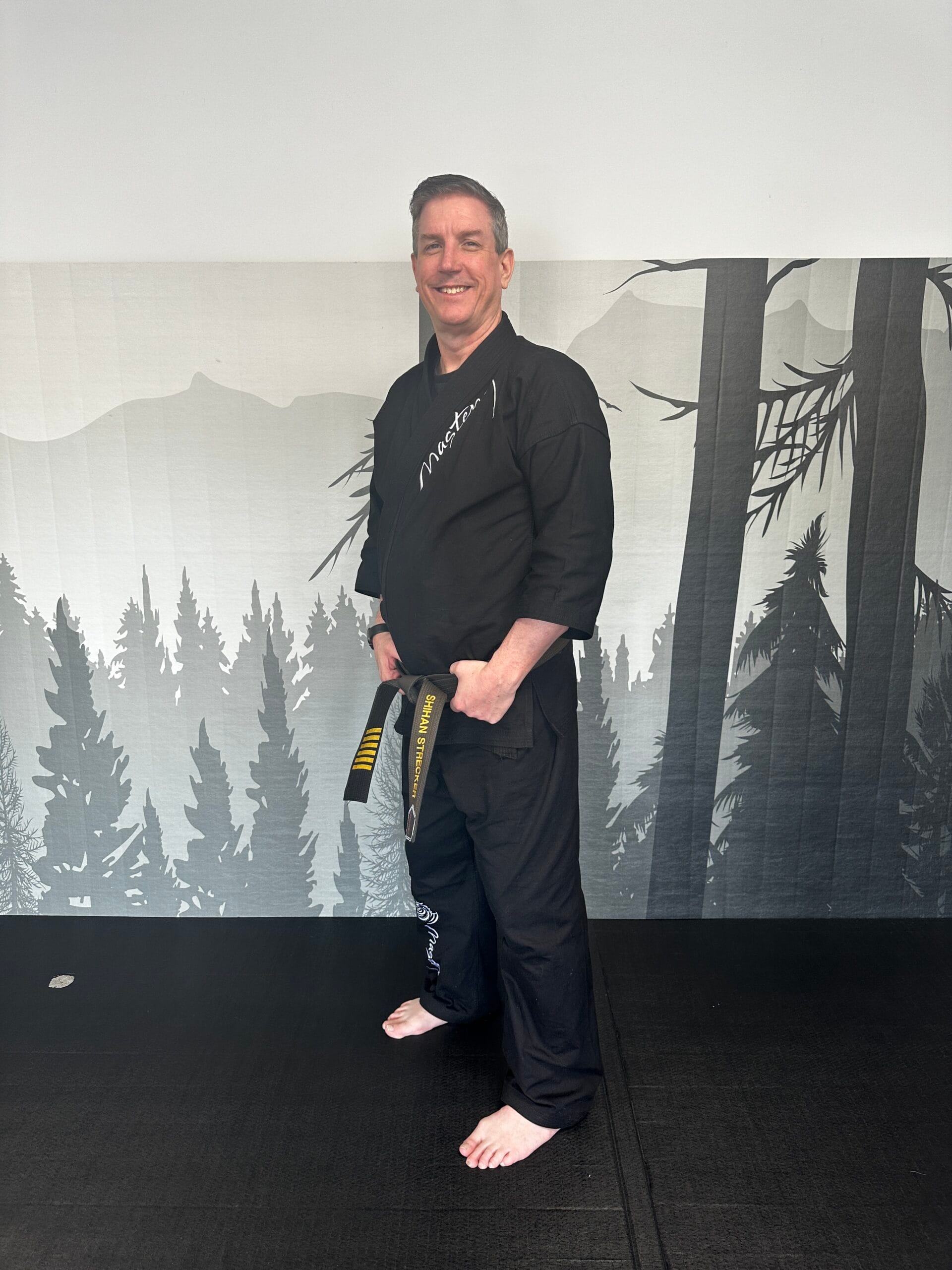
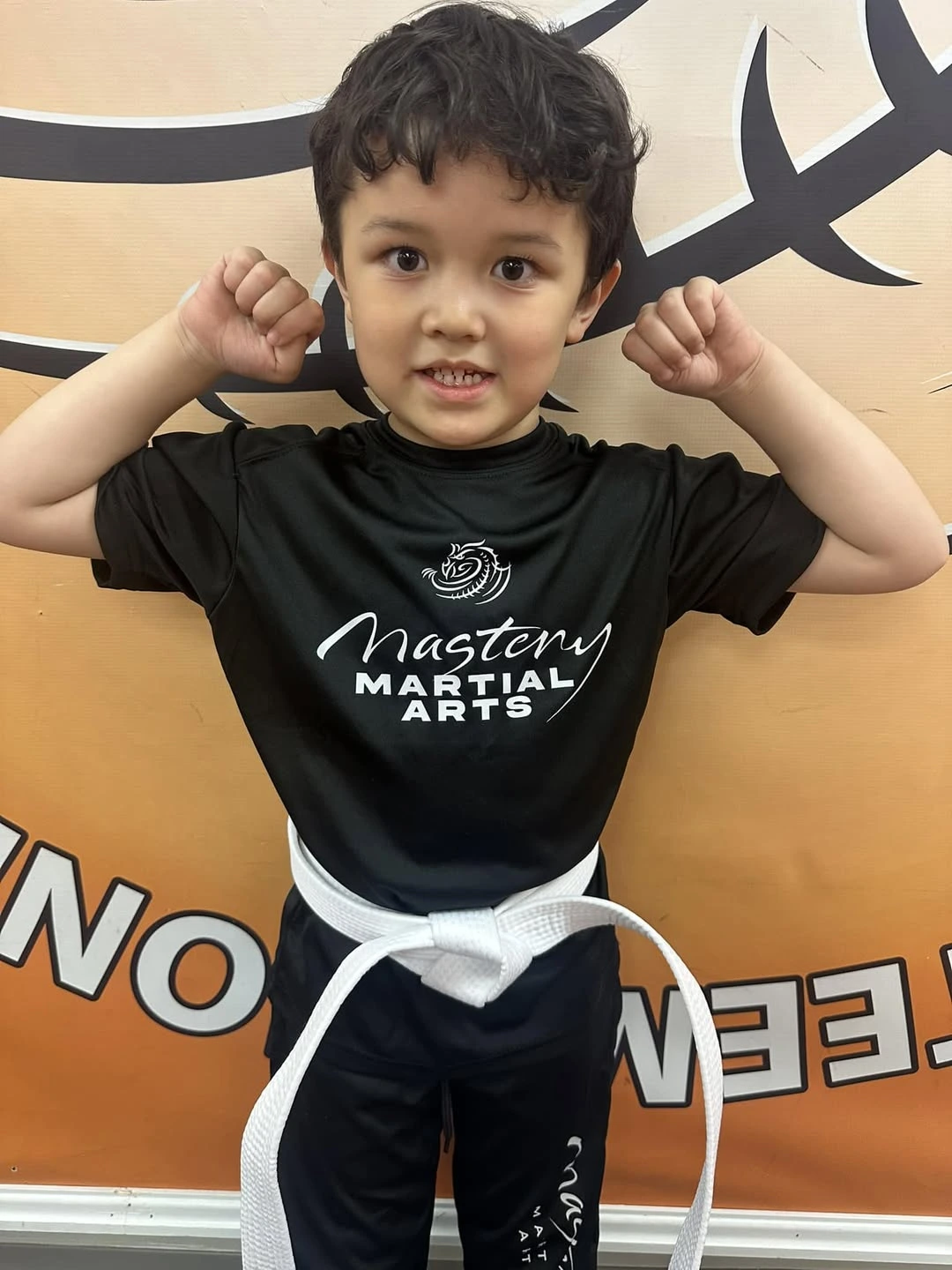
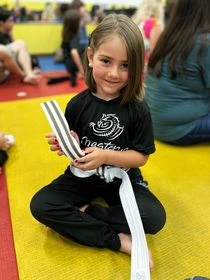
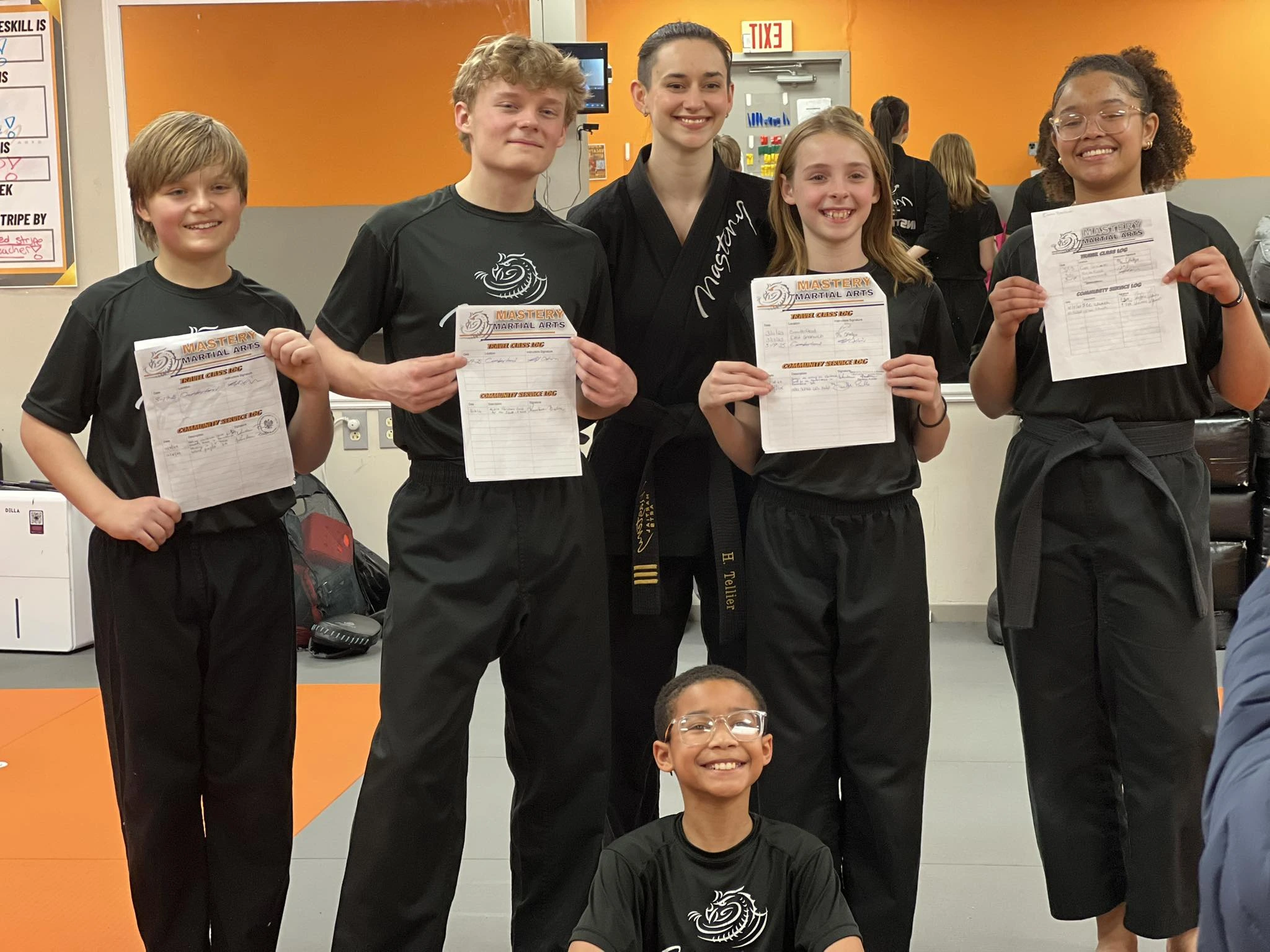
0 Comments